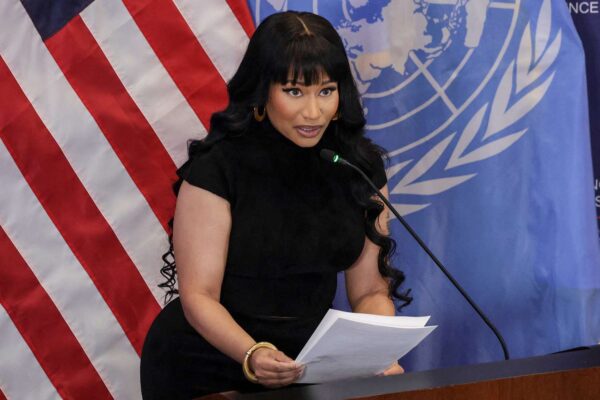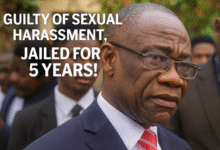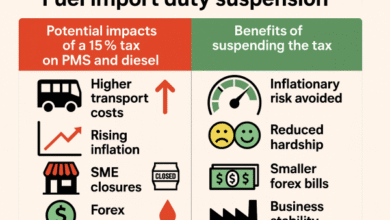
Nigeria has sharply condemned the United States’ decision to exclude its officials from a high-profile United Nations event headlined by American rapper Nicki Minaj—an event that addressed alleged religious persecution in Nigeria without the country’s participation.
For Abuja, this was more than a diplomatic slight; it was a dangerous precedent in global human rights engagement.
The Nigerian Chargé d’Affaires to the UN, Syndoph Endoni, said the U.S.-led exclusion amounted to “shaving our head in our absence”—a symbolic protest highlighting that decisions affecting a sovereign nation were made without its input or right of reply.
The event, hosted at the UN Headquarters in New York in collaboration with the U.S. Mission, centred on claims of targeted killings against Nigerian Christians. These allegations, repeatedly rejected by the Nigerian government, resurfaced following the U.S. designation of Nigeria as a “Country of Particular Concern” over alleged Christian genocide.
Nigeria insists the crisis is broader, more complex, and driven by extremist criminality affecting both Christians and Muslims.
A Diplomatic Flashpoint: U.S. Excludes Nigeria From Conversation About Nigeria
According to Endoni, Nigeria learned—one day before the event—that the U.S. had invited three UN member states and several individuals, including a Nigerian pastor, but deliberately excluded official Nigerian representatives.
The justification, reportedly tied to concerns for participants who feared “reprisals,” has been met with firm pushback.
Nigeria’s Position:
- A nation cannot be accused of genocide without being allowed to respond.
- Exclusion fuels misinformation, escalates tensions, and undermines diplomatic cooperation.
- Human rights dialogue must be inclusive and evidence-based, not politically charged or celebrity-driven.
Endoni noted that shutting out Nigeria denied it the opportunity to present its own data, clarify misconceptions, or address legitimate concerns on insecurity.
Human Rights Debate Enters Pop Culture Arena
Nicki Minaj, speaking emotionally at the UN event, urged unity and condemned attacks on all religious groups.
Her remarks—”Nigeria is a beautiful nation with deep faith traditions and beautiful barbs”—blended activism with admiration for her Nigerian fanbase.
Minaj maintained neutrality, stating:
“This is not about taking sides. It’s about uniting humanity. No one should ever be persecuted for their religion.”
Her comments echoed global anxieties about rising religious intolerance but also underscored the complexity of Nigeria’s security landscape, where extremist attacks have killed Christians, Muslims, and traditional worshippers alike.
Nigeria Warns Against ‘Naming and Shaming’ Without Facts
The Nigerian mission warned that the U.S. approach:
- Could escalate sectarian tensions
- May inflame perceptions of religious division
- Undermines ongoing cooperation on counter-terrorism and humanitarian support
Nigeria stressed that it is not ignoring the atrocities committed by extremist groups such as Boko Haram, ISWAP, and bandit militias—but rejects any narrative suggesting the State is complicit in targeted religious persecution.
U.S. Maintains Event Was ‘Private’ — But Critics See a Pattern
According to U.S. officials, the event was private and structured to protect vulnerable participants.
Human rights observers, however, argue that excluding Nigeria from a forum about its internal issues risks:
- Politicising human rights
- Undermining collaborative solutions
- Allowing celebrity activism to overshadow diplomatic process
BRANDECONOMY Human Rights Insight
This controversy highlights a growing global problem:
Human rights narratives increasingly shaped by political agendas, celebrity influence, and selective framing—often at the expense of nuance, verification, and fairness.
Nigeria’s exclusion is troubling not because the concerns about violence are invalid, but because no country should be tried in absentia in the court of global public opinion.
Sustainable solutions require:
- Data-driven analysis
- Government participation
- Cross-border collaboration
- Protection of all victims, regardless of faith
The world must resist simplistic narratives that reduce complex security crises to binary religious conflicts.











